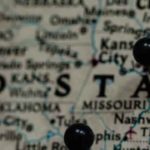If you or your company is thinking of entering the US market, you should familiarize yourself with what constitutes copyright, trademark, or trade secret material, and what is protected/not protected within each Intellectual Property (IP) category in the United States.
Doing so will go a long way to preventing you from unintentionally violating the IP rights of someone else (or some other entity), which could cost you thousands of dollars in fines and delay or prevent your entry into US markets.
About Copyright in the United States
The US Copyright office has distinct definitions of what constitutes copyright protection, what is covered, and what isn’t:
- US copyright protects original works of authorship fixed in any tangible medium of expression, now known or later developed, from which they can be perceived, reproduced, or otherwise communicated, either directly or with the aid of a machine or device.
- Works of authorship include literary works; musical works, including any accompanying words; dramatic works, including any accompanying music; pantomimes and choreographic works; pictorial, graphic, and sculptural works; motion pictures and other audiovisual works; sound recordings; architectural works; and non-open source software code.
- Copyright does not protect ideas, procedures, processes, systems, methods of operation, concepts, principles, or discoveries, regardless of the form in which it is described, explained, illustrated, or embodied.
A work in the United States is under copyright protection from the moment it is created. Registration is not required to claim ownership, but the work would need to be registered in the United States to bring a lawsuit for infringement.
Businesses would typically want to assert copyright ownership of their websites, marketing and advertising materials, logos, computer programs/non-open source software, articles, and instruction manuals.
About Trademarks in the United States
While a copyright protects original works of authorship, a trademark protects words, phrases, symbols, or designs.
A trademark is typically a symbol, word, phrase, sound, color, or other unique identifier of specific goods or services from a specific source.
Examples include brand names like Nike, Samsung, and McDonald’s; product names such as Big Mac or Mastercard; or even distinctive shapes such as the Coca-Cola bottle.
Similar to copyright protection in the US, which is applied to a work from the moment it is created, in the United States, businesses and individuals get automatic trademark rights when they use their brands. However, with the explosion of e-commerce and global markets, trademark protection has become increasingly important as a way to assert evidence of ownership.
As such, non-US companies, individuals, or entities seeking to do business in the United States need to be aware if the foreign mark they intend to use is potentially in conflict with an existing US trademark or service mark.
One place to start their search is the United States Patent and Trademark Office (USPTO), where they can conduct an online search of pending, registered, and dead trademarks using the Trademark Electronic Search System (TESS). While a TESS search that yields no conflicts is not a guarantee your mark will or can be registered, it is a great first indicator.
Ultimately, the determination if a mark can be registered and if it is potentially in conflict with an existing US trademark or service mark is determined by USPTO lawyers. One of the main reasons for registration to be refused is because the mark is likely to cause confusion with an already-registered mark.
About Trade Secrets in the United States
Trade secrets are a form of IP that pertains to any confidential, non-public formula, practice, design, method, compilation, device, or other information that has economic value. According to the USPTO definition of a trade secret, “it must be used in business, and give an opportunity to obtain an economic advantage over competitors who do not know or use it.”
Trade secrets do not require registration and they are protected for an unlimited period of time.
The recipe for Coca-Cola, the Colonel’s recipe for KFC chicken, manufacturing techniques, and computer algorithms are examples of trade secrets.
The United States is obligated to provide “a means for protecting information that is secret, commercially valuable because it is secret, and subject to reasonable steps to keep it secret” as a member of the World Trade Organization and a party to the Agreement on Trade Related Aspects of Intellectual-Property Rights (TRIPS).
Trade secret owners can prevent people/businesses from copying, using, or benefiting from its trade secrets or disclosing them to others without permission.
One of the keys to maintaining the protection of a trade secret is maintaining secrecy. Trade secret owners must demonstrate a genuine desire to keep the information secret at all times, such as marking certain documents as “confidential.” Failure to proactively keep the trade secret can result in others laying claim to it.
Non-US individuals or businesses entering US markets need to be cognizant of the risk of inadvertently disclosing a trade secret by introducing a product/service into the US market that is based upon or includes trade secret material.
What About Patents?
There is a fourth component to what constitutes Intellectual Property in the United States, and that’s patent protection, which we’ll cover in another article.
“IP laws and their navigation are complex and often confusing, “explains Eric Ludwig, ESQ, an experienced, US-based trial lawyer with an extensive background in intellectual property and business litigation. “To protect themselves and their own IP, any foreign/overseas company, individual, or entity thinking about entering the United States market, should retain competent US-based legal counsel—someone who can commit to a process of due diligence on behalf of the client and advise on various legal issues, especially in the area of best practices concerning IP laws, patents, trademarks, etc.”
Protect Your Product. Your Business. Your Dreams.
Contact Eric Ludwig today for a free, one-hour consultation to discuss whether you need to apply for copyright, patent, and/or trademark protection in the United States.
(619) 929-0873 | [email protected]



